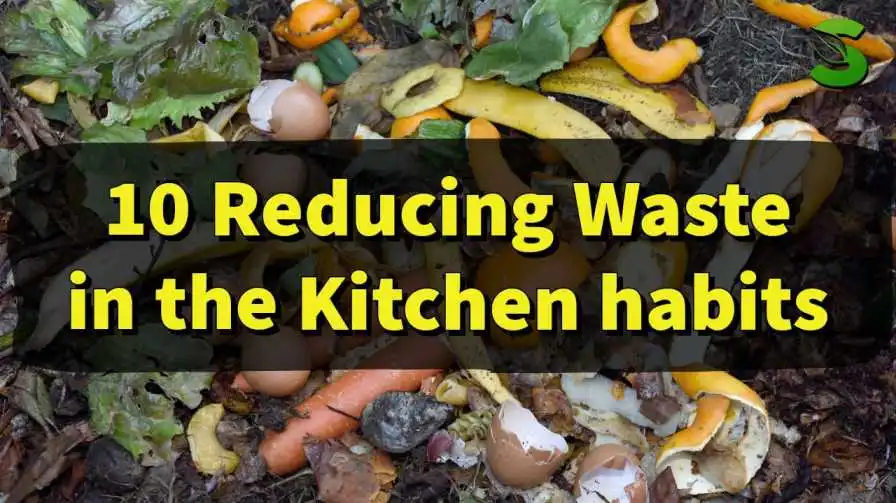In a world increasingly focused on sustainability, the kitchen is a prime area where we can make a significant impact. Reducing Waste in the Kitchen isn’t just about being eco-friendly; it’s a lifestyle that benefits the planet and our wallets. This comprehensive guide will walk you through practical steps, insightful experiences, and expert advice to transform your kitchen into a hub of sustainability.
1. Mindful Meal Planning
Begin your waste reduction journey with mindful meal planning. By strategizing your meals for the week, you can minimize food waste and optimize your grocery shopping.
2. Embracing LSI Keywords
Unlock the potential of your kitchen sustainability journey by embracing LSI Keywords. These are not just words; they are the key to a greener, more eco-conscious lifestyle.
3. Reducing Food Packaging
Explore innovative ways to reduce food packaging in your kitchen. Opt for bulk purchases, reusable containers, and sustainable packaging alternatives.
4. Composting 101
Delve into the world of composting and discover how kitchen scraps can be transformed into nutrient-rich compost for your garden. It’s a simple step with a big environmental impact.
5. Sustainable Shopping Habits
Revolutionize your kitchen by adopting sustainable shopping habits. Choose local, seasonal produce, and support businesses committed to reducing their environmental footprint.
6. DIY Cleaning Products
Cut down on kitchen waste by creating your own DIY cleaning products. Simple ingredients like vinegar and baking soda can be powerful allies in maintaining a clean and eco-friendly kitchen.
7. Mindful Water Usage
Learn how to optimize water usage in the kitchen. Small changes, like using a basin for washing vegetables, can contribute to a significant reduction in water waste.
8. Eco-Friendly Kitchen Appliances
Upgrade your kitchen with eco-friendly appliances. Look for energy-efficient options that not only save electricity but also contribute to a greener lifestyle.
9. Upcycling in the Kitchen
Discover the art of upcycling in the kitchen. Turn old jars into storage containers or get creative with leftover materials to create unique kitchen accessories.
10. Reducing Single-Use Items
Bid farewell to single-use items in the kitchen. Opt for reusable alternatives, from shopping bags to utensils, and contribute to a sustainable future.
Reducing Waste in the Kitchen
Now, let’s delve deeper into the heart of our mission: Reducing Waste in the Kitchen. This section will provide actionable tips and insights into making your kitchen a waste-free zone.
The key lies in conscious consumption and waste reduction at the source. By being mindful of what enters our kitchen and how we manage it, we can significantly cut down on waste.
Consider implementing a “zero-waste shopping list” where you prioritize items with minimal packaging. Invest in a compost bin to dispose of organic waste responsibly. Additionally, get creative with leftovers, turning them into new meals to prevent unnecessary food waste.
Remember, the journey to a waste-free kitchen is gradual. Small changes add up over time, leading to a more sustainable and environmentally conscious lifestyle.
FAQs about Reducing Waste in the Kitchen
Q: How can I start reducing waste in my kitchen?
Ans: Begin by assessing your current waste habits and gradually incorporate changes. Start with composting and gradually move towards sustainable shopping practices.
Q: Are there any eco-friendly kitchen appliances available?
Ans: Yes, many brands now offer eco-friendly kitchen appliances designed to reduce energy consumption. Look for products with energy-efficient labels.
Q: Can I really make a difference by reducing single-use items?
Ans: Absolutely! Every small change contributes to a larger impact. By choosing reusable alternatives, you’re actively reducing the demand for single-use plastics and promoting a sustainable lifestyle.
Q: What are some easy DIY cleaning products I can make at home?
Ans: Vinegar, baking soda, and lemon are excellent ingredients for DIY cleaning products. Mix them in various combinations to create effective and eco-friendly cleaning solutions.
Q: How does composting work, and how can I start doing it at home?
Ans: Composting involves decomposing organic matter into nutrient-rich soil. Start by collecting kitchen scraps like vegetable peels and coffee grounds, and invest in a compost bin or pile.
Q: Can sustainable shopping habits save me money?
Ans: Yes, adopting sustainable shopping habits can lead to long-term savings. By buying in bulk, choosing local produce, and minimizing food waste, you’ll not only reduce your environmental impact but also cut down on grocery expenses.
Conclusion
Embarking on the journey of Reducing Waste in the Kitchen is a commitment to a more sustainable and responsible lifestyle. By implementing these practical tips, you not only contribute to a healthier planet but also create a more efficient and cost-effective kitchen. Remember, small changes lead to significant results, and your efforts in the kitchen can ripple into a positive impact on the world.
ALSO READ |Recycling Solar Batteries for a Sustainable Future








1 thought on “10 Reducing Waste in the Kitchen habits”